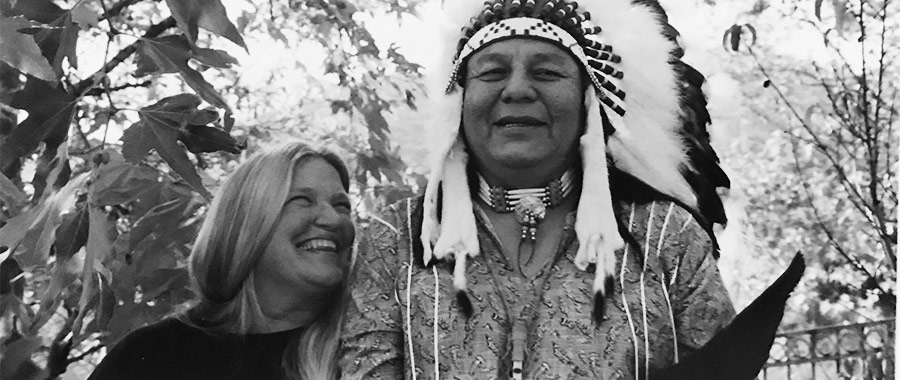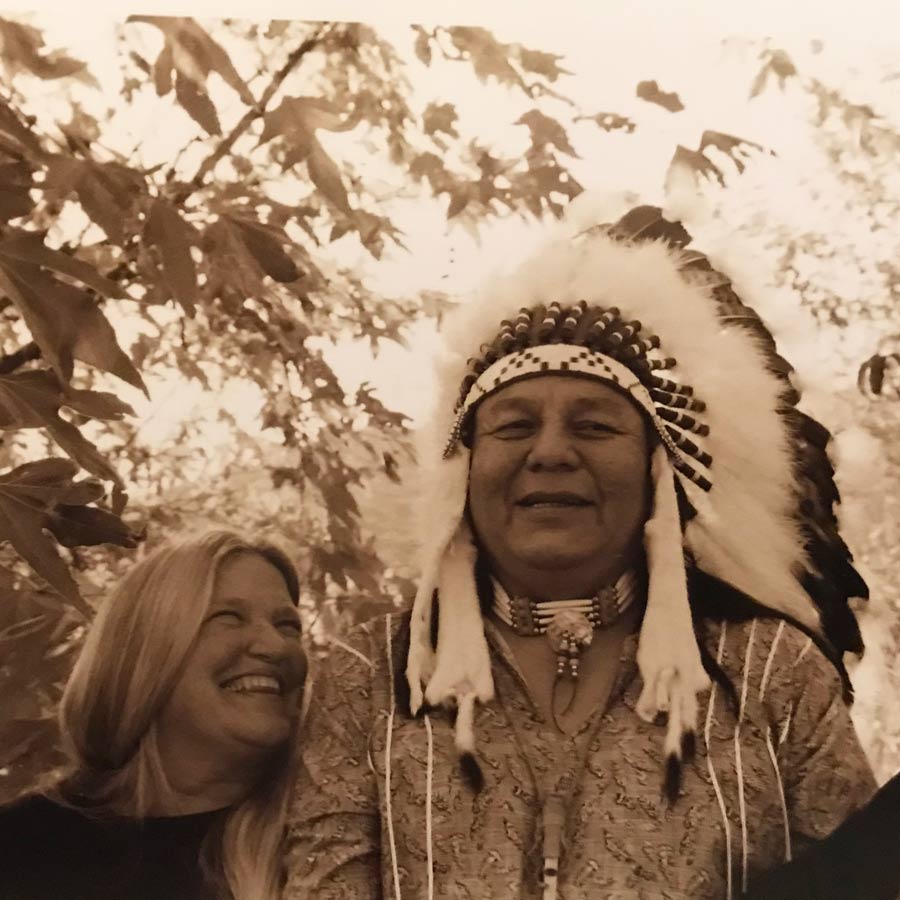The views expressed in our content reflect individual perspectives and do not represent the authoritative views of the Baha'i Faith.
Everyone can relate to grief in one way or another, just as everyone can relate to love. When the two are tied together, something very powerful happens.
Have you ever lost anyone you loved? Anyone who has lost someone very significant to them will be able to relate to the intense sadness that occurs. You can be completely overcome by grief, and even begin to question whether you want to stay in this world.
I experienced these feelings recently, as I’m sure many of you have, too.
However, I’ve had to balance my deep feelings of grief and loss with what I believe to be true spiritually. As a Baha’i, my Faith tells me a great deal about the nature of death and the progress of the soul after the end of this physical life. Baha’is do not view death as the end—in fact, the Baha’i teachings see it as a second birth, an entry into a new life of the spirit. Baha’u’llah even wrote that death is “a messenger of joy:”
O Son of the Supreme! I have made death a messenger of joy to thee. Wherefore dost thou grieve? I made the light to shed on thee its splendor. Why dost thou veil thyself therefrom? – The Hidden Words, p. 11.
In June of 2018, I lost my dear husband of 28 years. Peter V. Catches—also known by his Lakota name, Zintkala Oyate—who was a 38th generation Lakota medicine man on the Pine Ridge Reservation. We had a love story that movies are made of, filled with mystery and mysticism, love, trauma and joy.
The very first time we met, we felt a connectedness that was undeniable, which we both believed was God-sent. We knew we were each other’s destiny. We became each other’s greatest loves—and were each other’s greatest tests, too.
You see, Peter was traumatized by racism, having been a childhood victim of the Catholic Indian Residential Schools. That trauma only added to the racism he experienced his entire life from white people; so meeting a white, blond haired, blue eyed woman and marrying her was beyond his comprehension.
I was injured and traumatized by alcoholism for the greater part of my life, so marrying a man who was an alcoholic was beyond my comprehension. I was from one of the wealthiest places in South Florida and he was a medicine man from one of the poorest places in the entire country. On a deeper, more personal level we both represented the essence of what hurt the other the most growing up. As we looked at each other, we knew that the most courageous thing either of us could do was to marry the other.
We went into our marriage knowing that it would be really hard, although we didn’t realize how hard. But oh, the lessons we learned! We were given the gift of love which carried us through all those really hard years. Knowing that we were each other’s destiny truly helped. Plus, we both knew that we could do more good for the Lakota people together than apart.
That’s the question I would ask myself when I was tempted to walk away, during those periods when it was just too hard. But we stayed together despite the difficulties. I think my husband had a greater vision than I in this area, but we both had deeply committed our lives to help the Lakota people the best we could before we leave this world.
All my life, I have been fascinated by this spiritual journey that we are all on. When I was just a little girl playing in the woods making a playhouse out of moss, I heard a voice. My spirit grandfather told me, “Someday, you are going to marry someone very special when you grow up.” I sat there thinking of my world, which was very small, and trying to imagine how that could possibly be true. As a child I lived in a very small coal mining town in West Virginia, with only one short road that went through our community to the mines and the company store, located in a valley in the mountains. I asked, “How will I find him?” I’ll never forgot what that wise voice told me, “When you follow the laws of God, you will find him.”
It turned out exactly that way. I found my husband when I was living the laws of God as a Baha’i and felt every day I was being of service to God and His creation.
When Peter asked me to marry him, he was in his mid-thirties and warned me that he would only live until he was 44 years old. You may find this hard to believe—I know I did—but this really is a part of our mystical journey together. Peter had a very unique connection to the spirit world as a medicine man. While in a ceremony, the Eagles—he described them as angels who he worked for here on this plane of existence—told him that they needed him for 44 years.
This is significant because Peter always yearned to go to the spiritual world. This world was very hard on him, and he suffered greatly. After a long illness, his physical body could no longer sustain him, and he passed away. The doctors for years had called him Iron Man, as he seemed indestructible and came back from illnesses and procedures they had never witnessed before.
As I wrote his obituary, I realized that my husband Peter conducted 44 consecutive years of the Spotted Eagle Sun Dance—along with healing, teaching, and helping so many people throughout his lifetime. He had fulfilled his souls’ purpose! The week of his passing was filled with beautiful mystical events, which showed all who loved him his happiness and peace, and the ultimate oneness of all the worlds of God:
Blessed is the soul which, at the hour of its separation from the body, is sanctified from the vain imaginings of the peoples of the world. Such a soul liveth and moveth in accordance with the Will of its Creator, and entereth the all-highest Paradise. – Baha’u’llah, Gleanings from the Writings of Baha’u’llah, p. 156.
As a Baha’i, I thought I had a deep understanding of spiritual life. However, my husband Peter helped me to better understand the foundational principles of my own Faith—the oneness of humanity, the oneness of religion, and the oneness of God—on a deeper level than I had ever experienced.
Before I married Peter, I had no idea of the many prejudices I still carried in my heart. By helping my husband, as he was a Keeper of the Spotted Eagle’s Way, which encompasses some of the spiritual ways of his people, I deeply learned that oneness while living on the Pine Ridge Reservation these past 28 years. It was through my support of his work that I experienced that oneness; the healings, the miracles, the deep love and many sacrifices for the Great Mystery, God. That oneness is so much deeper for me now, and I am so thankful for his teaching me these lessons.

















Comments
Sign in or create an account
Continue with Googleor